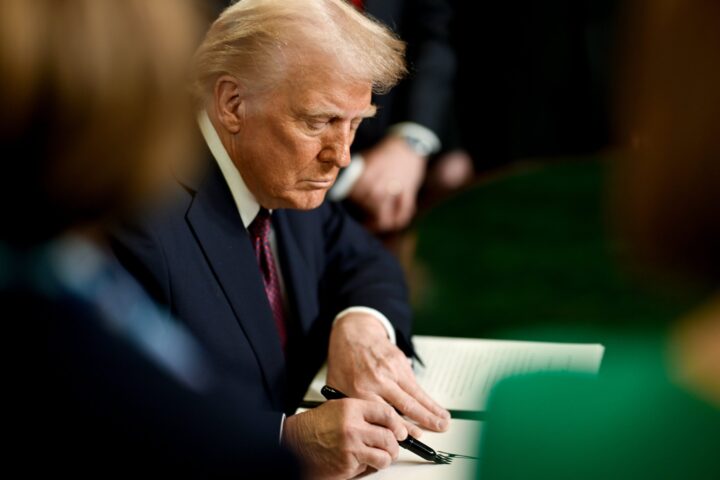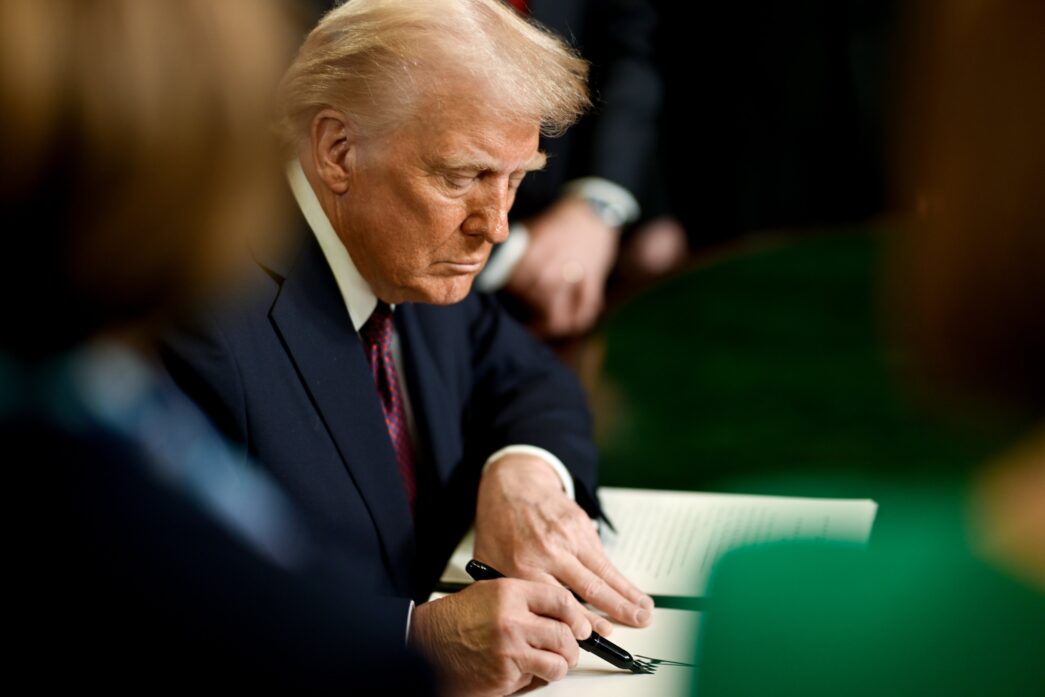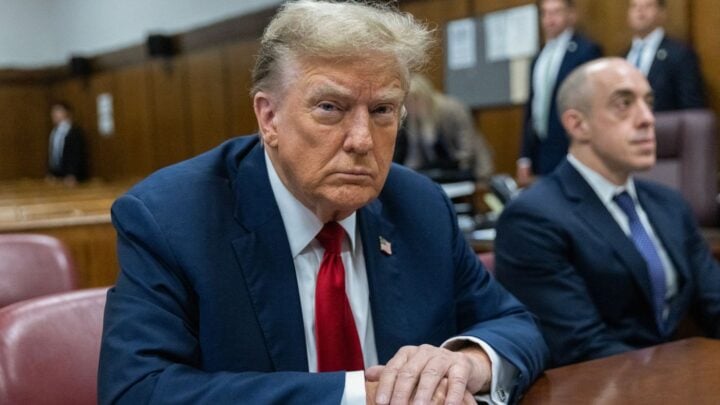Trump signing |
Photo: The White House
Birthright citizenship, the principle that confers citizenship upon individuals born within a country’s territory, has been a cornerstone of U.S. constitutional jurisprudence. Rooted in the Fourteenth Amendment, the concept has long been considered inviolable. However, President Donald Trump’s executive order to end birthright citizenship challenges established interpretations, specifically targeting children born to undocumented immigrants and temporary visa holders. This paper assesses whether the executive order aligns with constitutional mandates and statutory frameworks.
Historical Context of Birthright Citizenship in the United States
The Fourteenth Amendment, ratified in 1868, states:
“All persons born or naturalized in the United States, and subject to the jurisdiction thereof, are citizens of the United States and of the state wherein they reside.”
Advertisement
The clause was intended to overturn Dred Scott v. Sandford (1857), which denied citizenship to African Americans. Its language has since been interpreted to confer citizenship on nearly all individuals born within U.S. borders, regardless of their parents’ immigration status.
Significant case law, such as United States v. Wong Kim Ark (1898), affirmed that children born in the U.S. to non-citizen parents are citizens under the Fourteenth Amendment. The ruling established that “subject to the jurisdiction thereof” applies broadly to anyone present in the country, except for specific exemptions such as children of diplomats or enemy occupiers.
The Executive Order and Its Legal Challenges
Advertisement
Scope and Intent of the Executive Order
The executive order aims to redefine the application of the Fourteenth Amendment by excluding individuals born to:
1. Undocumented immigrants.
2. Temporary visa holders (e.g., tourists, students, and temporary workers).
The administration’s justification hinges on a restrictive interpretation of the phrase “subject to the jurisdiction thereof,” arguing that temporary or undocumented presence does not equate to full legal allegiance to the United States.
Constitutional Analysis
Advertisement
1. Textual Interpretation of the Fourteenth Amendment
The plain text of the Fourteenth Amendment does not distinguish between parents’ immigration statuses. Historical debates surrounding its drafting reveal no intent to exclude children of non-citizens, barring limited exceptions such as diplomats. The proposed reinterpretation contradicts established judicial precedents, particularly Wong Kim Ark.
2. Judicial Precedents
Courts have consistently upheld an expansive view of birthright citizenship. In Plyler v. Doe (1982), the Supreme Court affirmed that undocumented immigrants are “persons” under the Constitution, thus subject to its protections. Limiting birthright citizenship through executive action would require overturning or circumventing decades of case law.
3. Separation of Powers and the Role of Congress
Immigration and citizenship laws fall primarily under congressional authority. The Immigration and Nationality Act (INA) codifies birthright citizenship as interpreted under the Fourteenth Amendment. Any substantial change to this framework must be enacted legislatively, not unilaterally through executive orders. This raises significant separation-of-powers concerns.
Applicability to Temporary Visa Holders
Advertisement
Extending the executive order’s scope to children born to temporary visa holders introduces further legal complications. Temporary visa holders are lawfully present in the U.S. and owe temporary allegiance to the country during their stay. This allegiance arguably satisfies the “subject to the jurisdiction” requirement of the Fourteenth Amendment. Denying citizenship in such cases would necessitate a constitutional amendment or a redefinition of long-standing legal principles.
Executive Power and Constitutional Constraints
Advertisement
Presidential authority to issue executive orders is not absolute. In Youngstown Sheet & Tube Co. v. Sawyer (1952), the Supreme Court articulated limits on executive power, particularly when an action conflicts with congressional intent or constitutional provisions. The Trump administration’s order, if implemented, would likely face immediate challenges on these grounds:
1. It conflicts with the Fourteenth Amendment and statutory law.
2. It encroaches on legislative authority over immigration and citizenship policy.
Potential Implications
Advertisement
Domestic Consequences
• Civil Rights Violations: Excluding certain groups from birthright citizenship risks creating a stateless population and undermining equal protection principles.
• Administrative Burdens: Implementing the executive order would require extensive documentation and verification processes, straining government resources.
International Repercussions
• The U.S. would diverge from international norms on citizenship, risking criticism and strained diplomatic relations.
• Potential legal challenges in international forums regarding the treatment of children born to foreign nationals.
Advertisement
Conclusion
President Trump’s executive order to end birthright citizenship for children of undocumented immigrants and temporary visa holders represents a profound challenge to established constitutional principles. The Fourteenth Amendment’s clear language, coupled with extensive judicial precedents, underscores the legal infeasibility of such a policy. Additionally, the order exceeds the scope of executive authority and raises significant constitutional concerns regarding separation of powers.
Given these considerations, the courts are likely to invalidate the executive order, reaffirming the enduring strength of birthright citizenship as a foundational principle of American democracy.
Adapted from Jibrin, M. (2025). “The Legal and Constitutional Implications of President Trump’s Executive Order on Birthright Citizenship.” Journal of Constitutional Law & Policy, Vol. 58, Issue 1, pp. 45–78.
Views expressed by contributors are strictly personal and not of TheCable.
Add a comment












